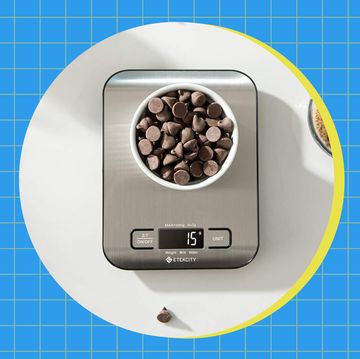Trying to lose weight? You might want to stop shoveling down your meals.
Eating too fast may affect your weight, according to a new study published online in BMJ Open. Researchers from Japan asked more than 59,000 men and women with type 2 diabetes to rate their eating speed using one of three options: fast; normal; or slow. The goal was to investigate the relationship between eating speed and obesity.
They found that "normal" and "slow" eaters were less likely to be obese — which they defined as a body mass index (BMI) of 25 or more — than fast eaters. (Obesity in the U.S. is a little higher, pegged at a BMI of 30 or higher.)
The participants also received health check-ups, where they were asked about other eating habits, alcohol and tobacco use, and sleep. Skipping breakfast, eating dinner within two hours of going to sleep, and post-dinner snacking were also linked with being obese, the researchers from Kyushu University Graduate School of Medical Sciences in Fukuoka, Japan, wrote.
Dr. Donald Hensrud, editor of the Mayo Clinic Diet and medical director of the Mayo Clinic Healthy Living Program, reviewed the study for Men’s Health. He said of the findings, “Intuitively it makes sense, and it’s one of the techniques that has been used in behavior change weight loss programs, to try to eat slower.”
One of the study’s strengths is its size, Hensrud says. But it’s self-reported data, and with that, “there’s always the concern of how objective it is," he said. "It isn’t the same as measuring something very specifically. It may well be true, but self-reported data needs to be looked at with a grain of salt.”
He also noted that the research was conducted in people with type 2 diabetes, and the results might skew a certain way because of that. “With diabetes, it seems to be a little tougher to lose weight than it is for people without diabetes,” Hensrud says.
Health conditions linked with obesity include heart disease, diabetes, abnormal cholesterol, and high blood pressure. The authors concluded that efforts aimed at reducing eating speed may help prevent obesity and lower the associated health risks.
“It’s a very benign and safe recommendation. It’s not going to hurt,” says Hensrud. He says that many other factors influence weight among people in the U.S. and around the world, including physical activity level.
"It isn’t conclusively proven how much this intervention will work, but it’s a common sense interaction that probably isn’t going to hurt, and it might help,” he says.













